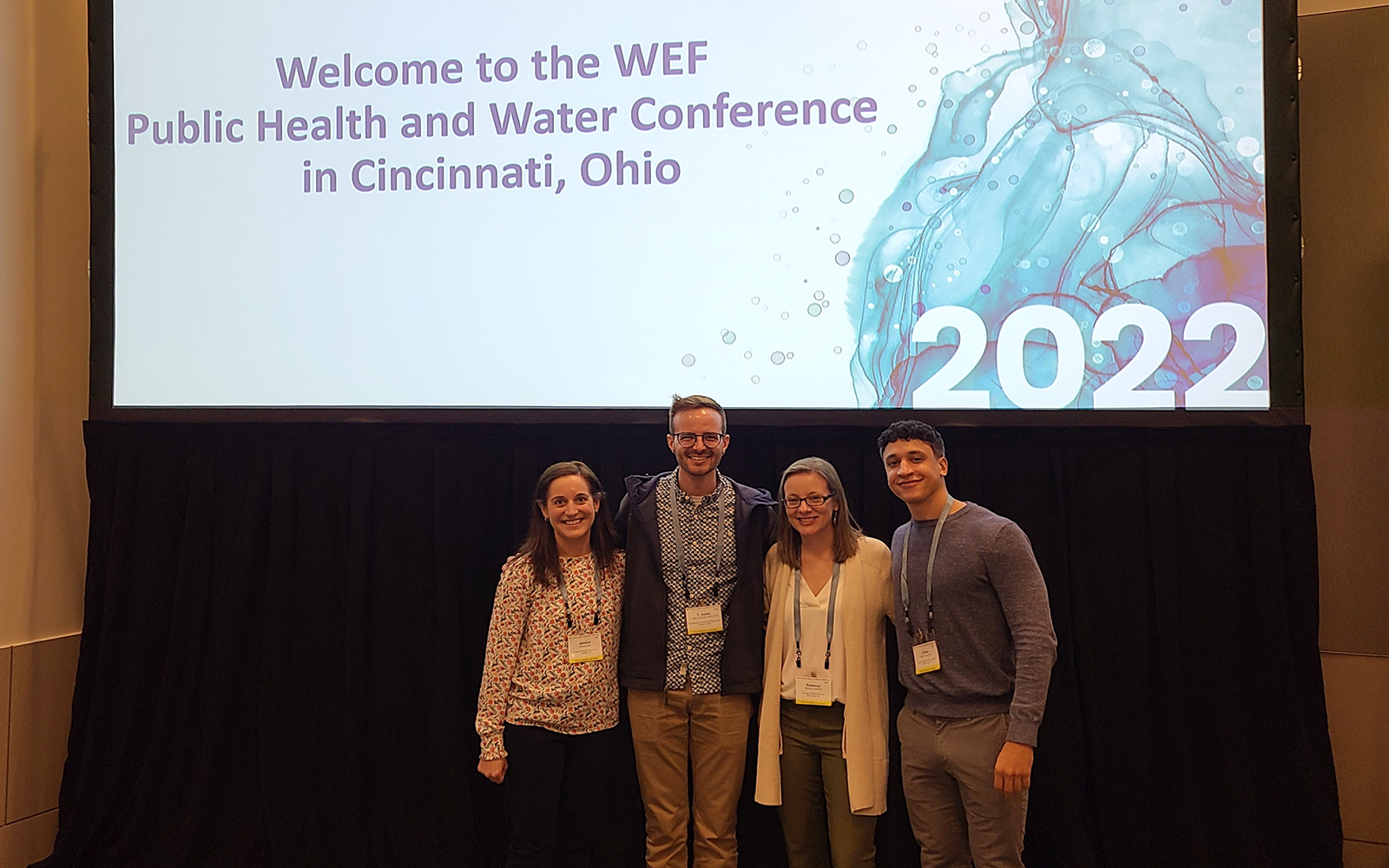ERG Presents Two Projects at Public Health and Wastewater Conference

ERG presented two innovative projects at the Water Environment Federation’s Public Health and Water Conference and Wastewater Disease Surveillance Summit. The conference, held from March 21 to 24, 2022, provides an opportunity for professionals, practitioners, and policymakers to share ideas on crucial public health issues.
ERG’s Clifton Dassuncao, Sc.D., presented a project funded by the Water Research Foundation to conduct pilot studies in three U.S. communities to evaluate wastewater-based epidemiology as a public health tool for characterizing opioid use. ERG partnered with utilities in Knox County, Tennessee; Memphis, Tennessee; and Madison, Wisconsin to sample pharmaceutical opioids and other drugs in wastewater. The study sought to identify target drugs and metabolites that can be measured in wastewater and used to estimate community drug use—while assessing trends and correlations with other public health surveillance data (such as opioid-related overdoses, emergency department visits, and prescription drug data). ERG’s Rebecca DeVries was co-Principal Investigator with Clifton on this project.
ERG’s Rebecca DeVries, Sc.D., and Jessica Gray, P.E., presented a project for New Mexico Environment Department (NMED) to combat COVID-19 transmission with surveillance of SARS-CoV-2—the virus that causes COVID-19—in wastewater from congregate settings, such as shelters and correctional facilities. Detections of SARS-CoV-2 in the wastewater prompted further action, such as personal testing, to minimize and prevent future COVID-19 outbreaks at the facilities. The project team also conducted a passive sampling pilot as a more cost-effective and simplistic sampling method, placing tampons in the wastewater for 24 hours rather than collecting 24-hour composite samples via autosamplers. The pilot results suggest that passive sampling using tampons provides equal or better detection of SARS-CoV-2 than the 24-hour composite and grab samples and demonstrates consistent trends in results.